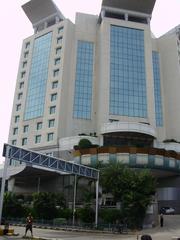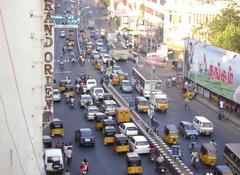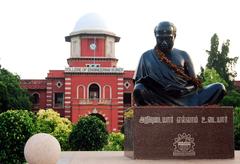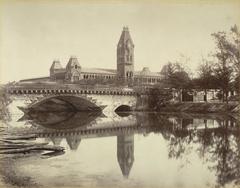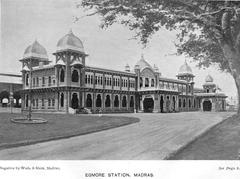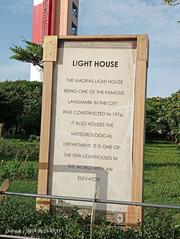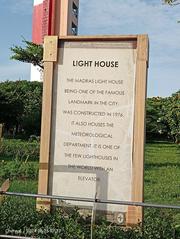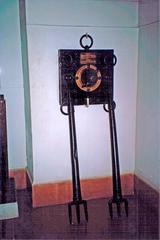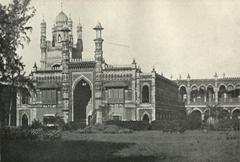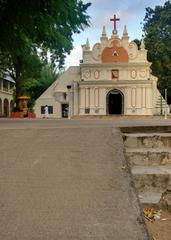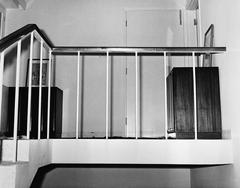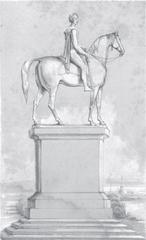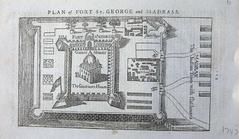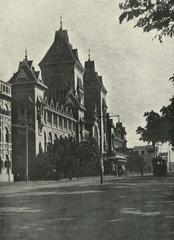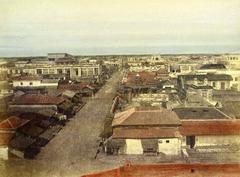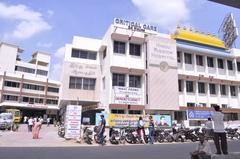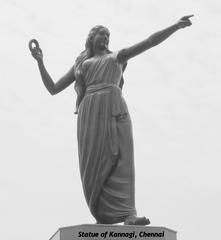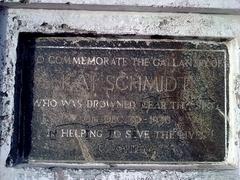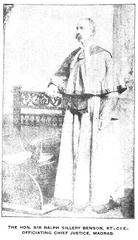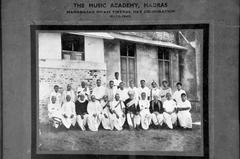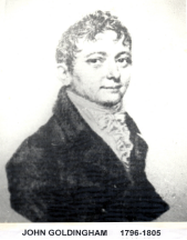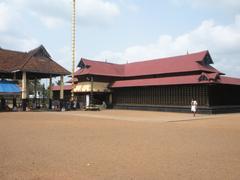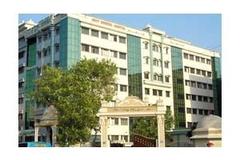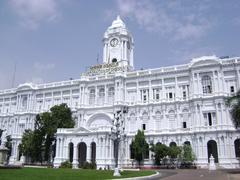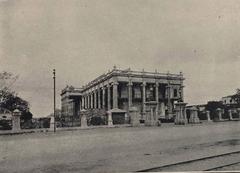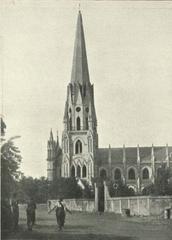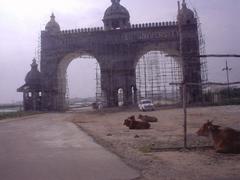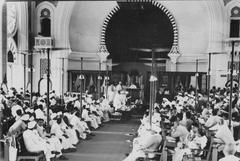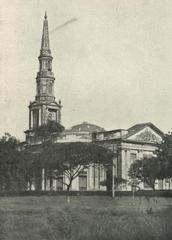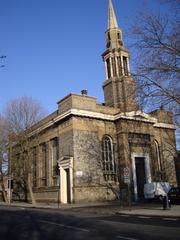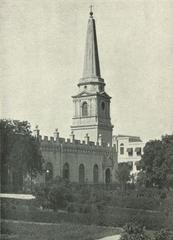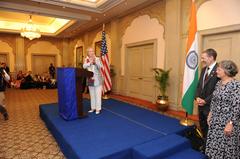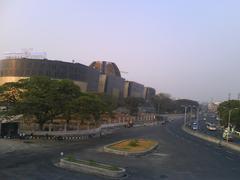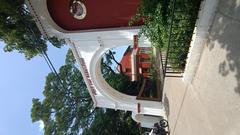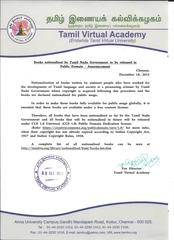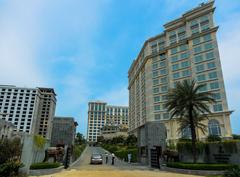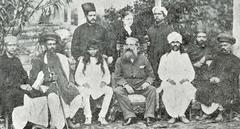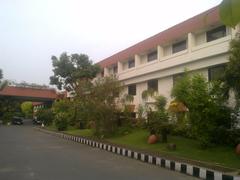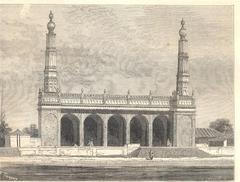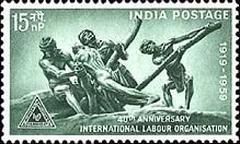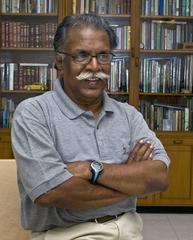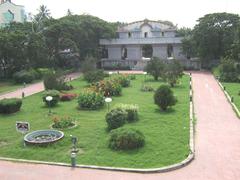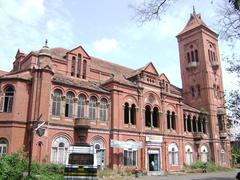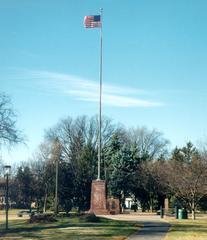Vadapalani Andavar Temple: Visiting Hours, Tickets, and Chennai Historical Sites Guide
Date: 14/06/2025
Introduction
Vadapalani Andavar Temple, commonly known as Vadapalani Murugan Temple, stands as a revered spiritual and cultural icon in Chennai. Dedicated to Lord Murugan, the deity representing youth, valor, and wisdom, this temple attracts thousands of devotees and travelers each year. Its history is intertwined with local legend, artistic grandeur, and vibrant festivals, making it a must-visit destination for those exploring Chennai’s religious and historical sites (Chennai Tourism). This guide offers a detailed overview of the temple’s heritage, architecture, visiting hours, ticketing, travel tips, and nearby attractions to help you plan a meaningful visit.
Table of Contents
- Introduction
- Historical Background
- Architectural Features
- Festivals & Cultural Impact
- Rituals and Daily Worship
- Visitor Information
- Accessibility and Facilities
- Dress Code and Visitor Conduct
- Nearby Attractions
- Frequently Asked Questions (FAQ)
- Conclusion
- References
Historical Background
Origins and Early Development
The Vadapalani Andavar Temple traces its roots back to the late 19th century. Its foundation is attributed to Annaswamy Naikar, a devout Murugan devotee who, upon receiving divine guidance in a dream, brought a sacred idol from Palani Murugan Temple to Chennai (Chennai Tourism; MakeMyTrip). The idol was first housed in a simple thatched hut, which soon became a spiritual center due to Annaswamy’s practice of “Arul Vakku”—divine prophecy (Social Village; Hindu Blog).
After Annaswamy’s passing, his disciple Rathinaswamy Chettiar continued the tradition and initiated efforts to construct a grand temple. Through the collective support of devotees and philanthropists, the original structure evolved into the impressive temple complex seen today (Social Village).
Architectural Features
Rajagopuram: The Iconic Gateway
The temple’s most striking feature is its majestic Rajagopuram (main entrance tower), rising approximately 40 feet and adorned with vivid stucco figures. These sculptures depict scenes from Lord Murugan’s life and Bharatanatyam dance poses, highlighting Tamil Nadu’s artistic heritage (Chenai Secrets; Kandhan.org). A 2016 renovation added gold-plating to the Rajagopuram, increasing its grandeur.
Dravidian Architectural Style
The temple exemplifies classic Dravidian architecture—pyramidal towers, pillared halls (mandapams), and ornate carvings (TripXL). The sanctum sanctorum is topped by a vimana (tower), and concentric prakarams (corridors) encircle the inner shrine.
Sanctum Sanctorum and Subsidiary Shrines
The sanctum houses the main idol of Lord Murugan in a standing posture, modeled after the Palani deity (Tripoto). The temple complex also includes shrines dedicated to Lord Shiva, Goddess Parvati, Lord Ganesha, and Lord Hanuman (Kandhan.org), as well as a sacred tank used for rituals.
Decorative Elements
The temple is renowned for its stucco art, vibrant frescoes, and 108 Bharatnatyam dance pose carvings. The Rajagopuram’s iconography symbolizes the transition from the material to the spiritual realm (AdoTrip).
Festivals & Cultural Impact
Vadapalani Andavar Temple is not only a spiritual center but also a cultural hub in Chennai, famed for hosting thousands of weddings and major Hindu festivals. Its connection to the Tamil film industry and its role in community welfare set it apart as a cornerstone of local life (Times of India).
Major Festivals
- Thaipusam: Celebrated in January/February, marked by kavadi processions and penances (Touristplaces Guide).
- Panguni Uthiram: Celebrates Murugan’s marriage to Deivanai; features mass weddings (Darshans Booking).
- Skanda Shashti: Six-day festival in October/November, culminating in dramatic reenactments of Murugan’s victory over Surapadman.
- Chithra Pournami: Observed in April/May, with special poojas and processions.
- Krithikai: Monthly festival aligned with the Krithikai star, featuring abhishekams and devotional rituals.
Rituals and Daily Worship
The temple conducts five main poojas daily, each involving abhishekam (ritual bathing), alankaram (decoration), naivedyam (food offerings), and deepa aradhana (lamp waving). Special rituals include Milk Abhishekam, Santhanakappu, archanais, tonsure, and ear-piercing ceremonies. The temple is renowned for conducting over 7,000 weddings each year (TheDilli.in).
Visitor Information
Visiting Hours and Entry
- Hours: 5:00 AM to 12:30 PM and 4:00 PM to 9:30 PM daily. During major festivals, hours may be extended.
- Entry Fees: General entry is free. Special entrance fees are ₹50 on regular days and ₹100 during festivals. Special darshan and ritual tickets can be booked online (Darshans Booking).
Travel and Accessibility
- Metro: Vadapalani Metro Station is the nearest stop.
- Bus: Multiple MTC routes connect the temple.
- Auto/Taxi: Widely available across Chennai.
- Parking: Ample space with nominal fees—₹5 for bikes, ₹20 for cars.
The temple is fully wheelchair accessible, with ramps and special assistance available for differently-abled visitors (TheDilli.in).
Facilities
- Marriage and event halls
- Tonsure and ear-piercing centers
- Free footwear stands, drinking water, and clean toilets
- Onsite library and hospital services
Dress Code and Visitor Conduct
Visitors are expected to wear modest, traditional or conservative attire. Shorts, mini-skirts, sleeveless tops, and low-waist jeans are not permitted. Sarees, salwar kameez, dhotis, or full-length trousers with shirts are recommended (TheDilli.in).
Nearby Attractions
Combine your temple visit with other notable Chennai historical sites, such as:
- Kapaleeshwarar Temple
- Santhome Basilica
- Guindy National Park
- Marina Beach
- Government Museum
These sites offer diverse cultural and heritage experiences within accessible distance of Vadapalani (Times of India).
Frequently Asked Questions (FAQ)
Q1: What are the Vadapalani Andavar Temple visiting hours?
A1: Daily from 5:00 AM to 12:30 PM and 4:00 PM to 9:30 PM.
Q2: Is there an entry fee to visit the temple?
A2: General darshan is free. Special entrance fees are ₹50 on regular days and ₹100 during festivals.
Q3: How can I reach the temple by public transport?
A3: The temple is near Vadapalani Metro Station and well-served by city buses and taxis.
Q4: Are there facilities for differently-abled visitors?
A4: Yes, the temple provides wheelchair access, ramps, and dedicated assistance.
Q5: What is the dress code for visitors?
A5: Modest, traditional attire is required; shorts and sleeveless tops are not permitted.
Q6: Can I book poojas or rituals online?
A6: Yes, bookings for darshan, rituals, and special events can be made via the official website or authorized portals.
Conclusion
Vadapalani Andavar Temple stands as a beacon of faith, artistry, and community in Chennai. Its majestic architecture, vibrant festivals, and inclusive facilities make it both a spiritual haven and a cultural landmark. Whether you seek blessings, admire Dravidian design, or explore Chennai’s heritage, the temple offers an enriching experience. Plan your visit thoughtfully to fully appreciate its spiritual and cultural grandeur.
For the latest updates, guided tours, and exclusive insights, download the Audiala mobile app or consult official tourism resources.
References
- Vadapalani Andavar Temple, 2024, Chennai Tourism
- Vadapalani Andavar Temple Guide, 2024, MakeMyTrip
- Vadapalani Murugan Temple History and Information, 2024, Social Village
- Vadapalani Andavar Temple, 2024, Times of India
- Arul Vakku of Vadapalani Andavar Temple, 2024, Hindu Blog
- Vadapalani Andavar Temple Information, 2019, Tamil Nadu Tourism Blog
- Sri Vadapalani Andavar Temple, 2024, Chennai Secrets
- Vadapalani Murugan Temple Architecture, 2024, Kandhan.org
- Famous Temples in Chennai, 2024, AdoTrip
- Vadapalani Murugan Temple Visitor Information, 2024, Tripoto
- Vadapalani Murugan Temple Visit and Rituals, 2023, TheDilli.in
- Vadapalani Andavar Temple Online Booking, 2024, Darshans Booking
- Vadapalani Temple Travel Guide, 2024, TripXL
